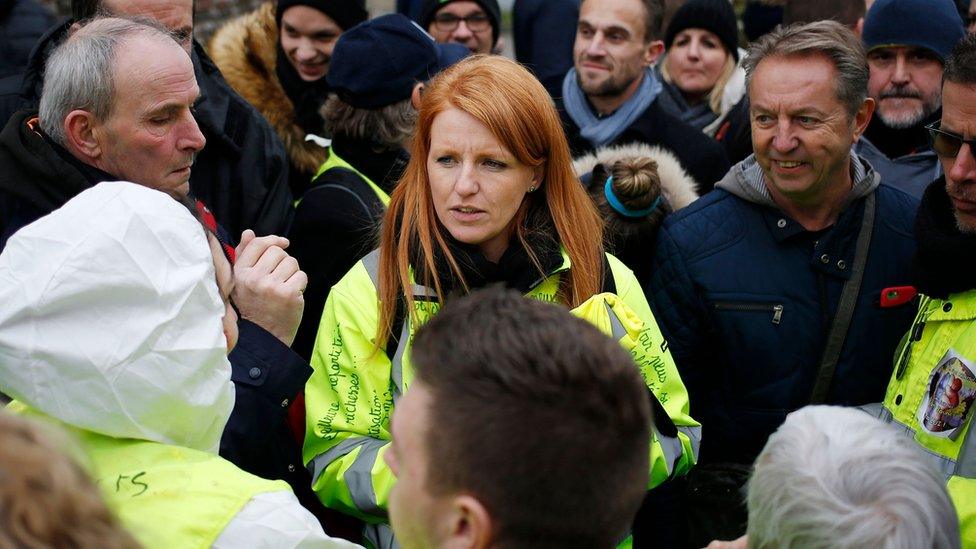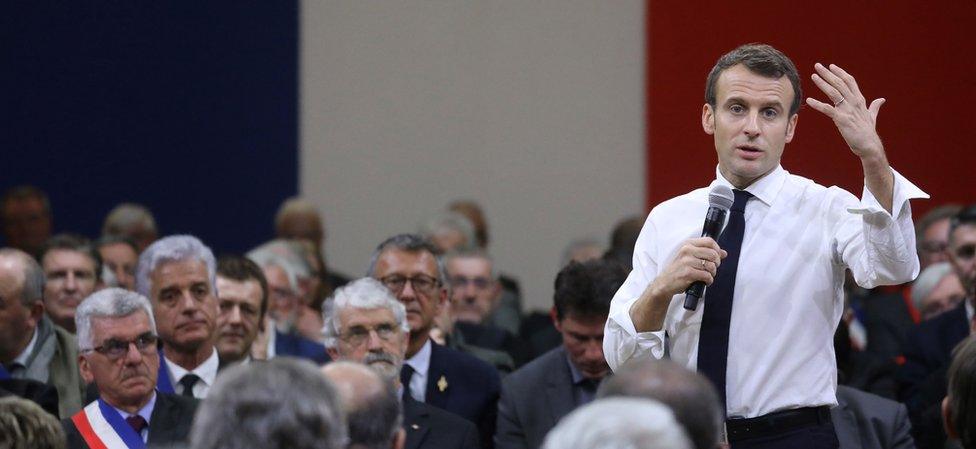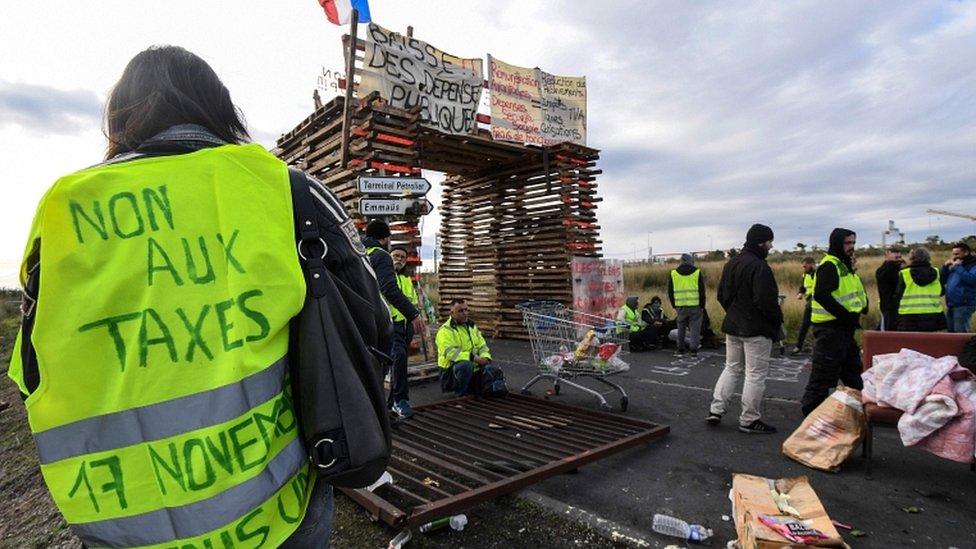Gilets Jaunes launch European election bid
- Published

Ingrid Levavasseur says an arrogant government despises France's "little people"
The yellow-vest protest movement in France has named 10 candidates for the May European Parliament elections, but says it aims to expand the list to 79.
The grassroots movement - "gilets jaunes" in French - grew out of fuel tax protests in November.
Topping the list is Ingrid Levavasseur, 31, a care worker raising two children alone in Normandy. She accuses the government of arrogance.
During the protests Paris has seen its most serious street clashes since 1968.
The movement embraces a wide range of people, some of whom reject any association with the current political set-up in France and the EU.
In general they see President Emmanuel Macron as a symbol of traditional French elitism, remote from the hardships of ordinary people struggling to cope with utility bills, fuel taxes, low pay and unemployment.
In December Mr Macron scrapped a planned fuel tax rise, as the protests continued to grip France.
France fuel protests: Who are the people in the yellow vests?
Who is on the candidate list?
They range in age from 29 to 53, and have a variety of backgrounds, including a small business manager, a lawyer, another care worker and a full-time mother. Six are women and four men.
They call themselves the "Citizen-led Rally", or RIC, and the campaign will be run by another prominent activist, Hayc Shahinyan. But so far the movement has avoided picking one leader.
They aim to boost their candidate list to 79 by 10 February. Those candidates will be selected through a vote by yellow-vest activists.
They will be competing for 79 seats allocated to France in the European Parliament, though that figure might yet change because of the UK's uncertain Brexit timetable.
RIC needs to raise at least €700,000 (£609,000; $794,000) to field candidates, the French daily Le Figaro reports. Mr Shahinyan says RIC has about 10% of that figure so far, so it will appeal for donations and may try crowdfunding.
In an indication of its platform, RIC said it rejected "the decisions of European institutions and diktats from the financial and technocrat classes, who have forgotten what really matters: humanity, solidarity and the planet".
It vowed to be "spokesperson for the citizens, who will be consulted throughout the mandate".

President Macron is holding nationwide debates until 15 March
How has President Macron reacted to the protests?
Besides scrapping the fuel tax rise Mr Macron promised an extra €100 (£90; $114) a month for minimum wage earners and tax cuts for pensioners.
The package aimed at defusing the crisis will cost €10bn (£9bn; $11bn), the government says.
Mr Macron has also launched a national "Grand Debate", involving town-hall meetings nationwide to address the protesters' concerns.
On Thursday Paris City Hall was hosting a 12-hour debate, while Mr Macron was meeting conservative opposition leader Laurent Wauquiez and local mayors in Valence, south-eastern France.
Allow X content?
This article contains content provided by X. We ask for your permission before anything is loaded, as they may be using cookies and other technologies. You may want to read X’s cookie policy, external and privacy policy, external before accepting. To view this content choose ‘accept and continue’.
What can be expected in the European elections?
Nationalists and populists have made big gains across the EU in recent years, so they are likely to boost their representation in the European Parliament.
Italy has a populist Five Star/League coalition government, in Germany the far-right Alternative for Germany (AfD) is the main opposition party and nationalists are in power in Hungary and Poland.
The EU's proportional representation voting system can be advantageous for smaller parties. An example is the Eurosceptic UK Independence Party (UKIP), which has seven MEPs in Strasbourg but no MPs at Westminster.
According to an Elabe opinion poll published on Wednesday, Mr Macron's liberal La République en Marche (Republic on the move) is on course to win the 26 May election in France, followed by Marine Le Pen's far-right National Rally (RN) and the yellow vests, on 13%.
The European Parliament is reducing its total of MEPs, external because of Brexit, from 751 to 705. Without the UK, there are 73 fewer seats, but 27 are being reallocated to other countries. France's total rises from 74 to 79.
The plans could change, however, as it is still unclear whether the UK will leave the EU as scheduled on 29 March.
Italy's populist deputy prime ministers, Matteo Salvini and Luigi Di Maio, have sharply criticised Mr Macron and voiced support for the yellow vests.
French Europe Minister Nathalie Loiseau hit back on Wednesday, saying "we won't enter into a stupidity contest". She warned that for the time being France would not send ministers on visits to Italy.
- Published6 December 2018
